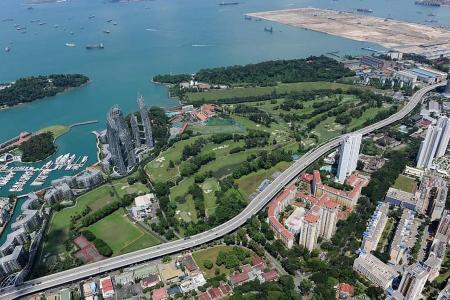More subsidies wanted for flats in prime areas: Poll
Singaporeans also think strict selection criteria is another way they can be kept affordable
New Housing Board flats in prime areas such as the city centre and Greater Southern Waterfront can be kept affordable and accessible through additional subsidies and strict selection criteria, many Singaporeans believe.
About 6,500 people have weighed in on how to make public housing in such areas inclusive, since plans to do so were announced last November.
Their suggestions will help shape not just housing, but also major social policy, with implications for future generations, said National Development Minister Desmond Lee yesterday.
"It's not just about the home or the possible investment upside, but it's about the kind of society and neighbourhoods we want to have, the kinds of core areas we want to see, neighbours we want to have and the identity we keep in Singapore," he said.
While the suggestions were diverse, people were clear that equity and fairness in allocating the flats, both at the initial buying stage and subsequent resale stages, were paramount.
Mr Lee said: "We're up against personal motivation, up against very powerful social forces and economic forces. It is incumbent on us to see that these prime locations continue to reflect the openness and diverseness of our society."
The majority of respondents - who gave their feedback through a national online survey, dialogues, focus group discussions and e-mails over the last eight months - supported additional subsidies that would keep flats affordable and strict criteria for first-time buyers and subsequent resale buyers.
Speaking at a virtual public engagement session conducted by government feedback unit Reach, Mr Lee raised various issues the Government has to address when formulating a housing model for future public housing.
ENTRY POINT
"What is the entry point for 'affordable'? Are we catering to middle-income professionals? Retirees who want to right-size? Working Singaporeans who need to live near those areas because they work there as security, cleaners and F&B?"
There is also the issue of the income ceiling for Build-To-Order flats and whether it is sufficient as an eligibility criterion to buy these prime flats, added Mr Lee.
Some suggestions discussed during yesterday's session include a longer minimum occupation period than the existing five years and a tiered system for the Government to recover the additional subsidies when the flats are sold.
Another suggestion was to introduce eligibility criteria for resale buyers to ensure that these flats remain accessible to a wide spectrum of Singaporeans, even on the resale market, and to encourage owner-occupation instead of for profit through rental or resale.
Singapore will look to more mature successful cities when working on the housing model, Mr Lee said.
Last December, he said a variety of flat types, such as two-room flexi units and rental housing, will be included where possible. Yesterday, Mr Lee reiterated that the model will apply only to future public housing in prime locations, not existing flat owners.
Get The New Paper on your phone with the free TNP app. Download from the Apple App Store or Google Play Store now


